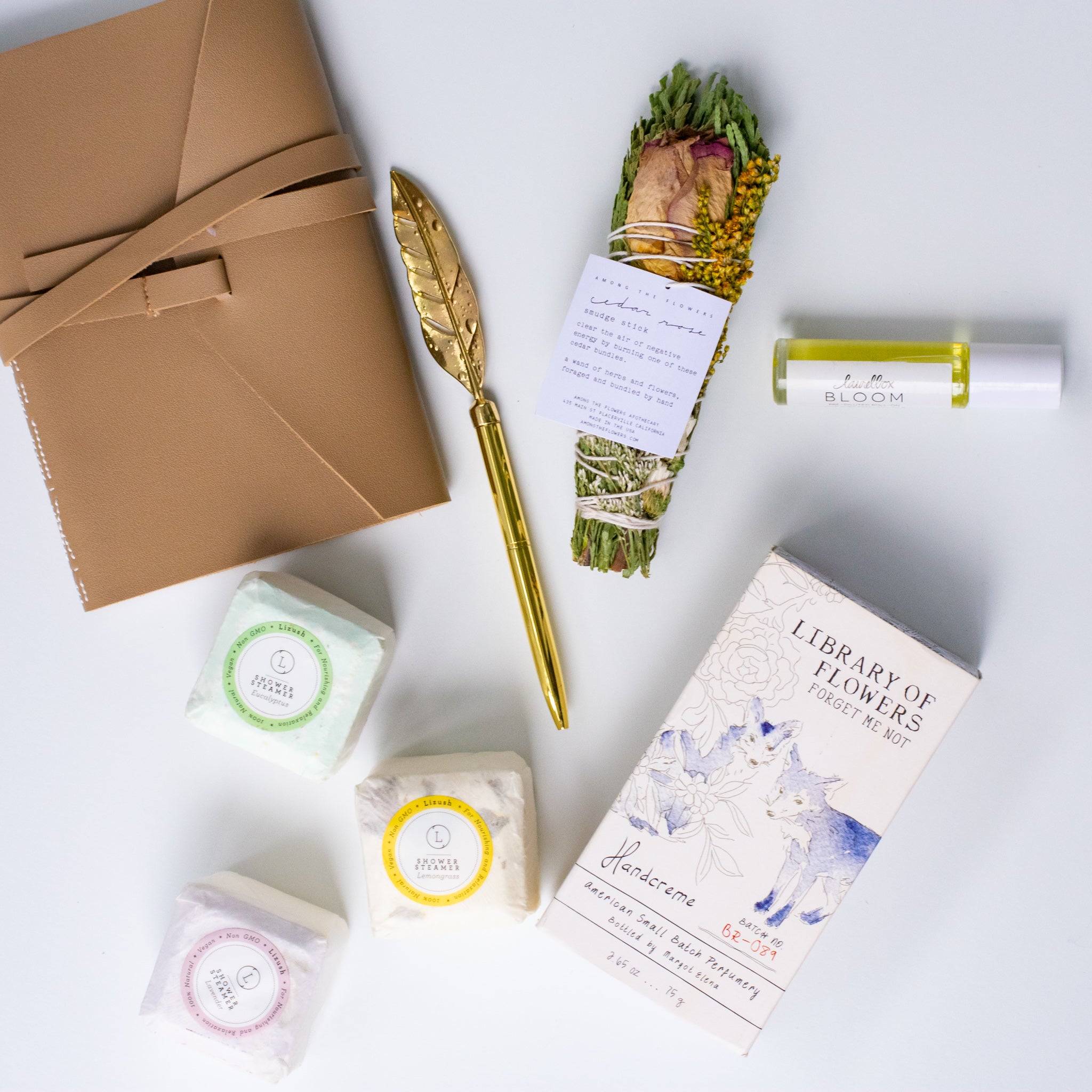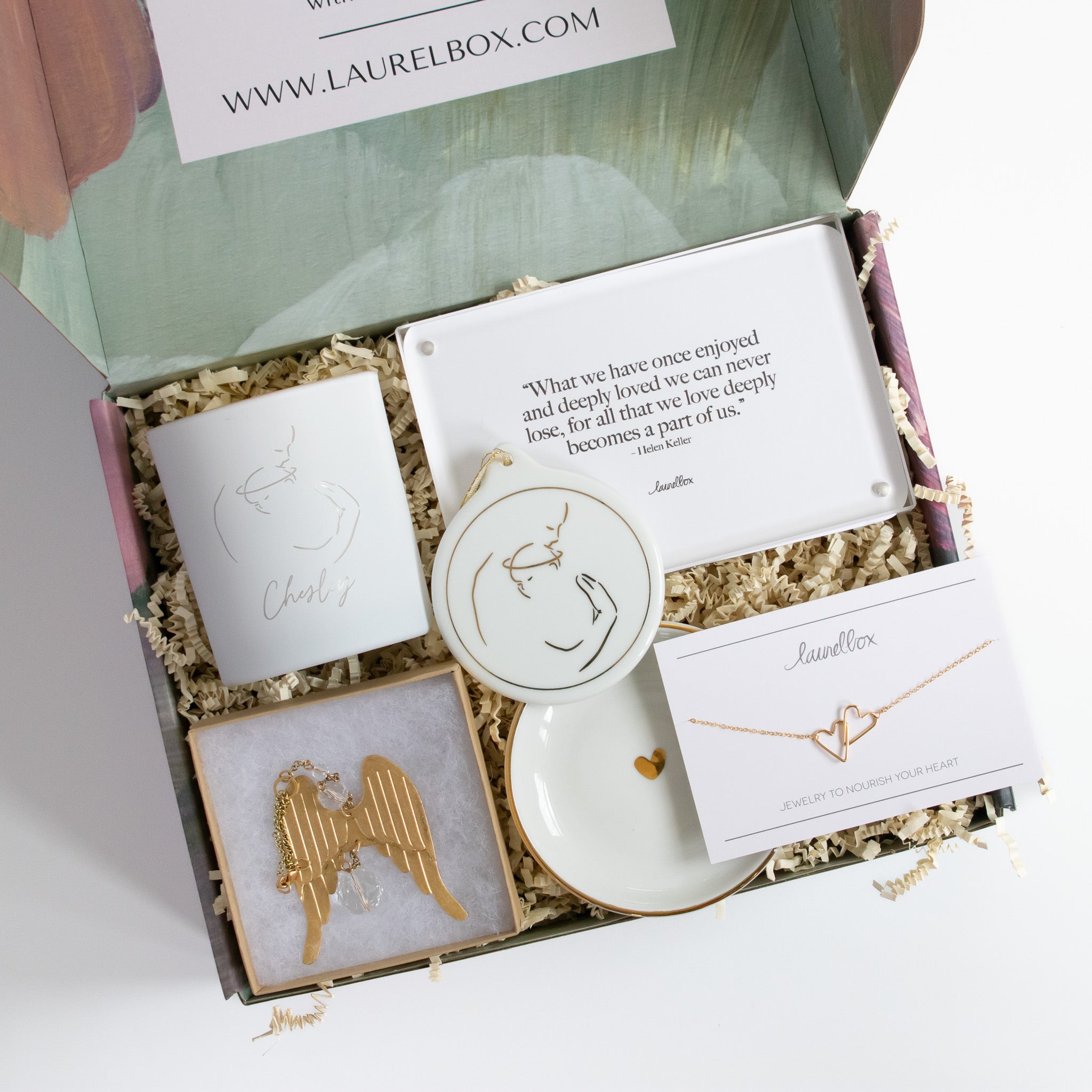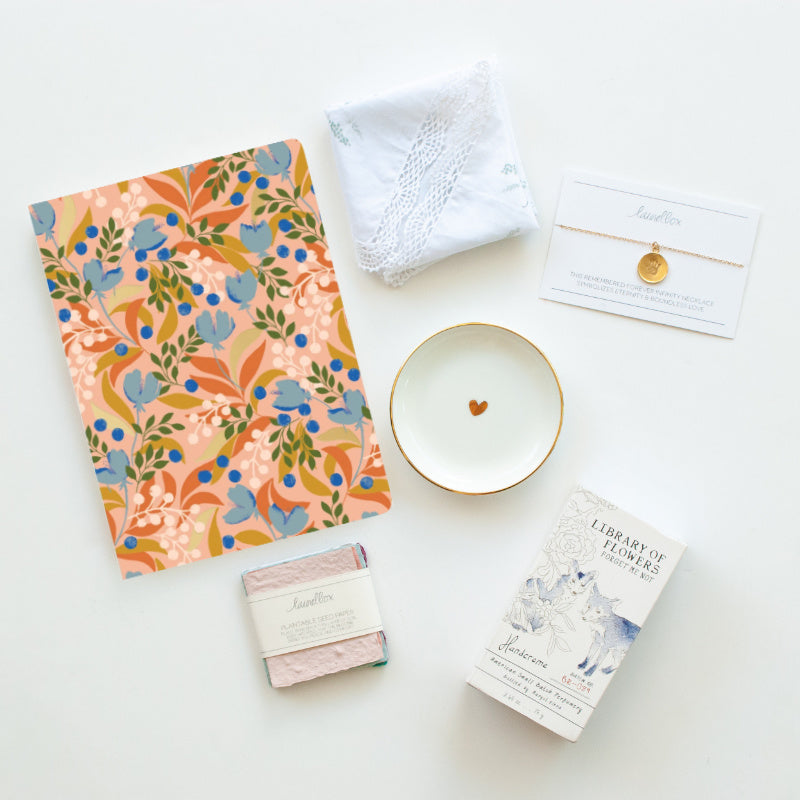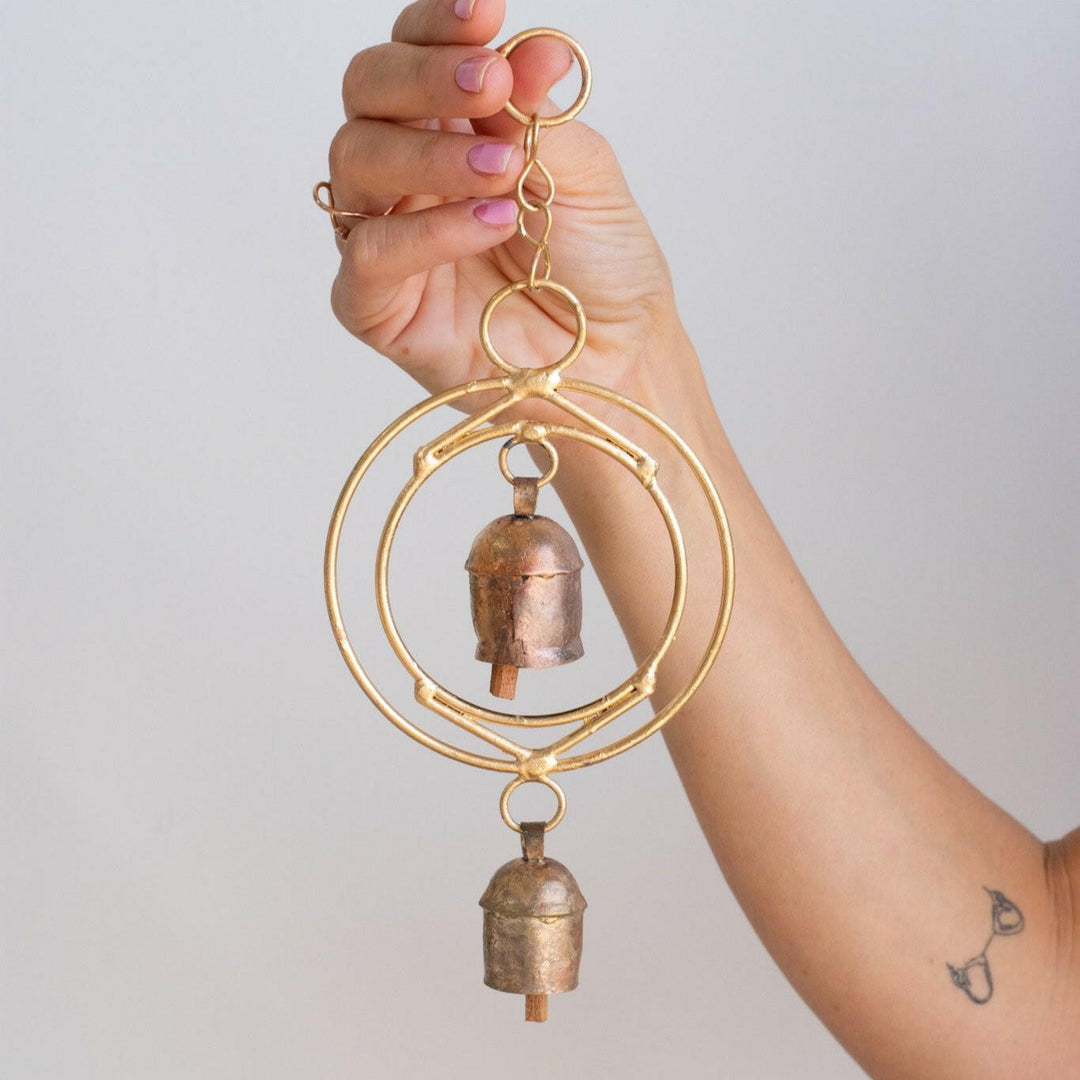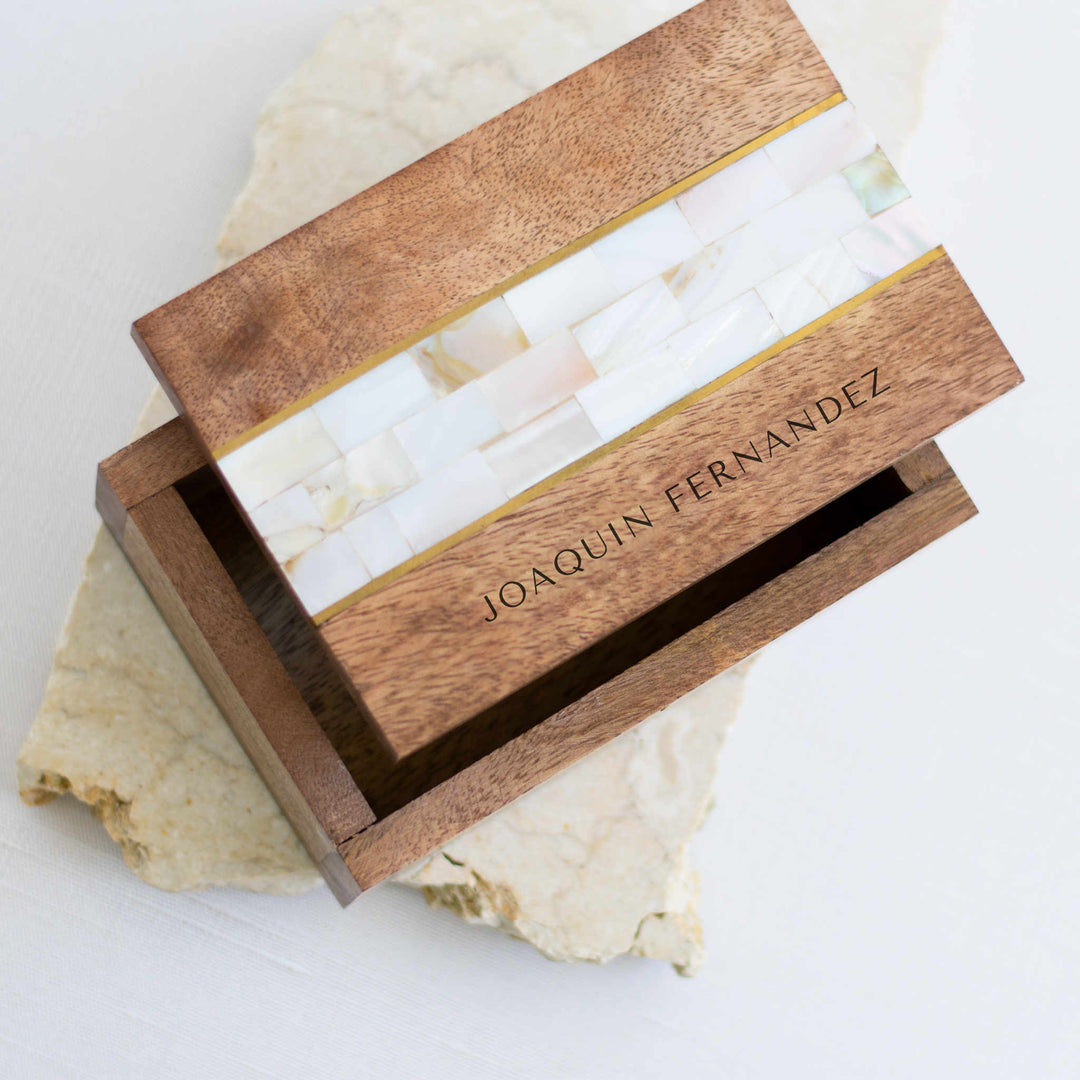Heritage, Loss, and Community Today
Thanks so much to Aleisa Yusko for this guest post...Aleisa has been a huge supporter and resource for laurelbox and we love her insight on the experience of losing a child for older generations and how we today can help carry a heavy burden of another.
I was 9 when I first found out about the baby -- the baby named Marilyn. She was my Grandmother's baby girl. Being just 9, I wasn't privy to much information other than she had died in infancy and Grandma and Grandpa were very sad when that happened. As I got older I gleaned more information about the sad mystery of my Aunt Marilyn. She was born on November 2, 1949, just two days before her parents' eighth wedding anniversary. There had been no prenatal diagnostics, no reason for them to believe they would be getting anything but a happy addition to their little family. However, at some point after Marilyn was born it was determined that something was "wrong" with her. That something was presumed to be a heart defect. Details are sketchy, but it is my understanding that my Grandma had little or no contact with her baby girl - likely not by choice. It was theorized that if the mother got to know the baby who would likely die, it would only make the loss worse, and so they were kept apart. As if anything could be further from the truth! For about two anxious and agonizing weeks my Grandma convalesced in her hospital room, as was the norm in that era. Thirteen days later, on November 15th, she would receive the news that her sweet Marilyn had passed away. There were no last lingering touches, no kisses goodbye. There was no photography to document a single one of those thirteen days. There were no footprints taken, no handprints, no locks of hair. There was no receiving blanket given to my Grandma that still embraced the smell of her sweet baby that she could take out from under her pillow at night. My Grandma went home that day or shortly after with empty arms and a shattered heart. It was a day she would never forget, but one that that the populace of her era expected her to quickly navigate past and put on a happy face. I'm certain she heard her share of "It was for the best"s and "You can always have another"s, and then she heard nothing because it was assumed she'd "forgotten" about it all.
Curious about why Marilyn's loss was handled in the way that it was, I researched the attitudes of death and dying in the 1940s. Several sources cited the advancement of modern medicine as a leading factor in this callous approach -- which at the very least, offers some sort of explanation. Prior to the progression of modern medicine in the 1940s and 50s, infant mortality was a common occurrence. Grief was very much a part of everyday life. As medical advancements like vaccines and antibiotics evolved, less and less people were dying. There became an unrealistic reliance on medical knowledge and technology during the time that Marilyn was born. When modern medicine didn't pull through, specifically as it pertained to the loss of a pregnancy or a baby, it elicited feelings of shame, inadequacy and failure. Deaths, especially such as these became a private matter. It was no longer a topic of amiable conversation. You were very alone in this trial.
Current guidelines for dealing with infant loss are very different. What changed? I was surprised to discover that it wasn't until as recently as the mid-1980's that cultural attitudes surrounding infant loss / miscarriage began to shift as a whole. The experience was no longer perfunctorily brushed under the rug as it had been for my Grandma. The depravity was recognized and remedied with the evolution of ultrasound technology and with the primitive forms of social media (magazines and newspapers). Women began to realize they weren't so alone in their grief. Topics in women's magazines sporadically branched away from superficial subject matters and began featuring candid articles about other women's experiences of loss. More recently with the evolution of social media, we are more networked than ever. But not for Facebook, I wonder if I would be in the same sad predicament of miserable solitude that my Grandmother was. There is only one other family I know outside of Facebook that has lost a baby as I have. Were this 1949, we probably wouldn't know about each other's losses, because we wouldn't have talked about those types of things!
It has been just over a year since my 2-year-old daughter, Nora passed away. She was diagnosed prenatally with full trisomy 18 (a triplicate of the 18th chromosome). We were told it was doubtful that our baby would survive the rest of the pregnancy. If she did, she certainly wouldn't live long. Days, maybe weeks. In a sense, we mourned her loss twice. We did not expect that we would be bringing a baby home, based on the odds and statistics we were given. We deeply grieved the loss of a "typical baby" yet patiently and anxiously awaited to see what God had in store for us. Beyond all hope, God gave us a miracle -- Nora Rose Yusko. Not only did we bring Nora home, but she was here with us for 777 precious, dignified and honorable days.
We are incredibly grateful for the time we were given with Nora, but never is there a good time to say goodbye to a child. We intensely mourned her loss (still do) - for the second time. Through each period of mourning we were surrounded by community -- the people who know us and love us, and a myriad of people who were once complete strangers. Instead of trying to pretend that nothing had happened and that life was "jolly", we were encouraged to commemorate and celebrate our daughter, to speak her name, wear her name on bracelets, necklaces, t-shirts -- NORA! To release balloons and Chinese lanterns for her, sprinkle pink glitter on her grave, for the love!!
I hate to imagine any infant being deprived of his or her mother's touch based on a somber medical prognosis. I hate to think of a mother being robbed of the opportunity of getting to know her baby, even if only for a short while, because society as a whole thought it was "for the best" and then having to pretend nothing ever happened. It has been sixty-six years since Marilyn's short and sorrowful visit to this earth. How I wish I could travel back through all of those calendar pages and make things different for my Grandma -- different for sweet baby Marilyn. Apart from that being impossible, I'm sure it would be a sad match for what heaven finally had to offer each of them.
Today's etiquettes for dealing with infant loss are by no means perfect. However, when looking back at my Grandma's experience as a reference point, we have certainly come a long way in the right direction. We might not always feel like we have the right words to say to a friend, loved one or acquaintance who has suffered a terrible loss. Even having been through the loss myself, I still struggle with finding the right words to say to others who have joined this sorrowful "club". No, it's not always easy, but a little human empathy can go a long way. "Hey, I'm thinking about you!" "You doing okay today?" "Tell me about your sweet daughter/son." You aren't reopening a wound or causing us to become sad by mentioning our babies. The wound is always there and our angels are ALWAYS on our minds.
None of us can undo what has already been done in the past, but as time progresses onward we can choose to be a part of positive change. Sometimes these experiences just need to be heard. Making yourself available to hear them might make all the difference in the world. I have made it my personal duty to help carry the heavy burdens of the grief-stricken families I meet along my own journey -- just as so many others did for us. No one should ever feel alone in their grief in this day and age.


